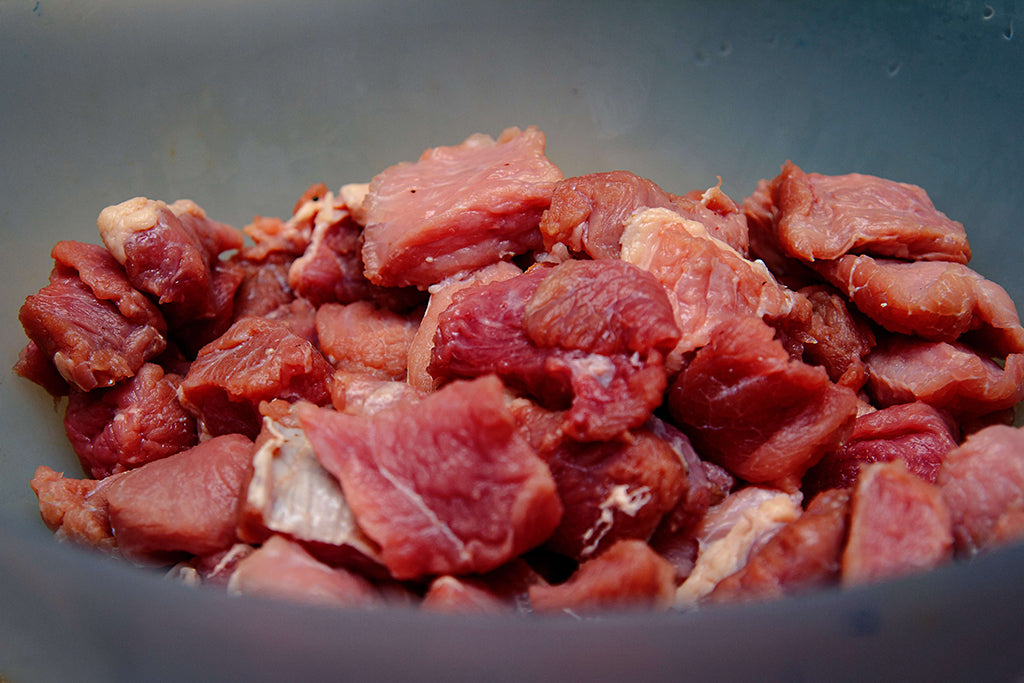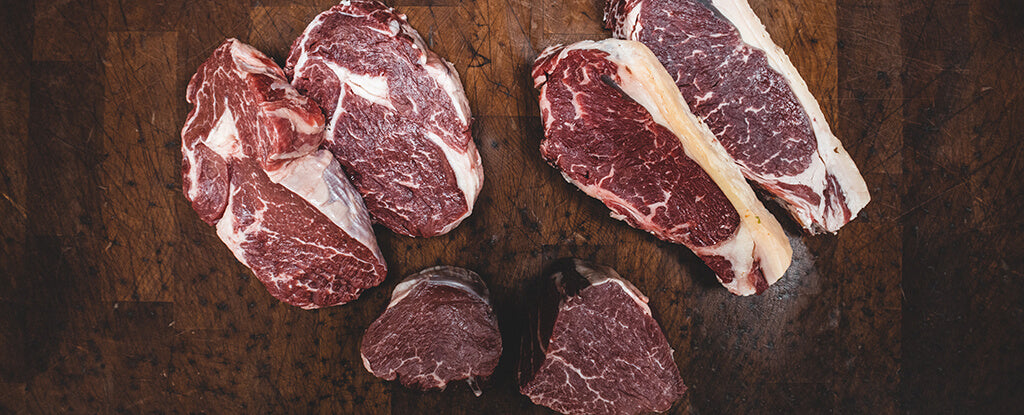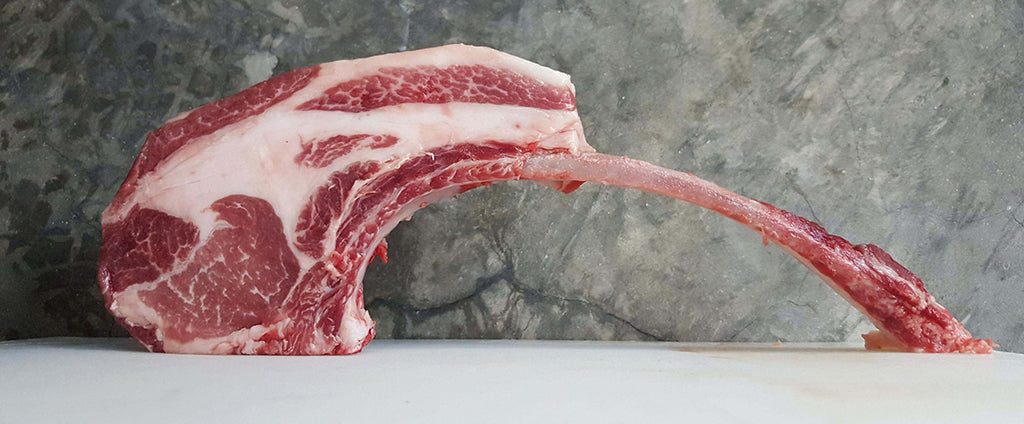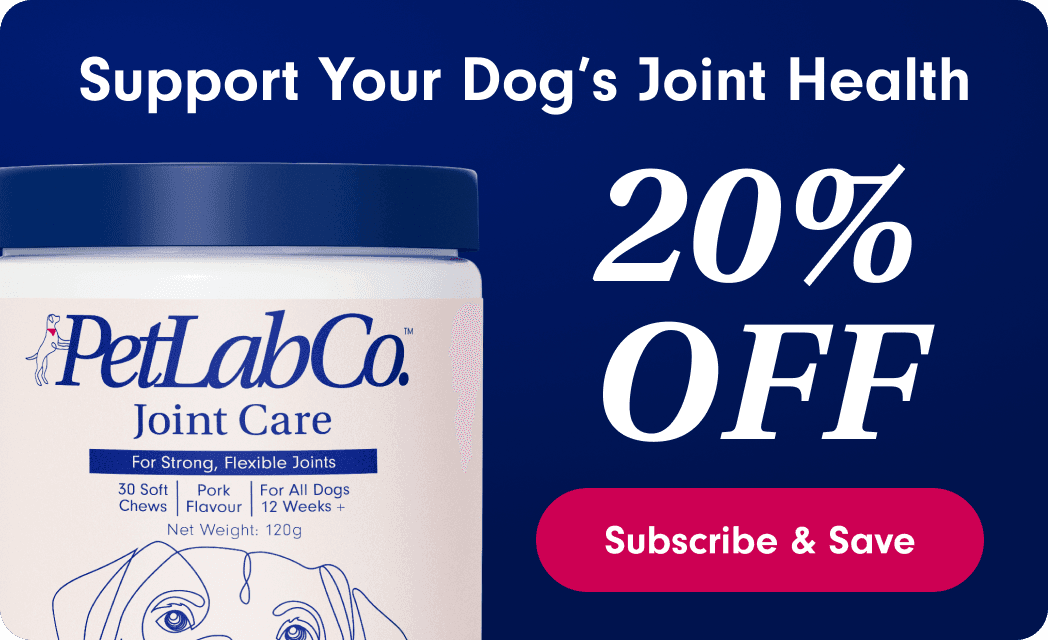
Raw Meat For Dogs: Can They Have It?
Can Dogs Eat Raw Meat?
Estimated Read Time: 5 minutes
Summary: In this blog, we ask “can dogs eat raw meat?”. We learn whether there are benefits to a raw meat diet for dogs, whether dogs can eat raw meat, and if raw meat diets for dogs are actually a risky business…
You may have heard of raw food diets for dogs because they’ve been growing in popularity over recent years. Why, you may ask? Because it’s thought to resemble a diet their wild ancestors would have had. However, wild dogs have a significantly shorter life expectancy than domesticated dogs which is worth noting.
Historically, wild canines would feast on raw meat and bones so the thought is that despite domestication, this is better for our dogs' health. But, is it…?
What Is A Raw Food Diet For Dogs?
Raw food diets typically consist of:
- Raw organ meats (like kidneys and liver)
- Muscle meat, often still attached to the bone
- Raw fruit and vegetables
- Unpasteurised dairy
- Whole, uncooked bones
Raw feeders claim their dogs see an improvement in their dog’s energy, they gain glossier coat, it’s easier to maintain weight and there’s a reduction in irritated skin. It’s thought that raw foods provide a source of natural microbes that fuel your dog’s gut as probiotic supplements do, and this is what helps with gaining these results.
But, not all microbes and bacteria that grow on raw food is good for a dog and there’s no significant scientific evidence yet to suggest that this is a direct result of raw feeding.
Can Dogs Eat Raw Meat?

Yes, dogs can eat raw meat but the question is more whether they should. Feeding your dog a diet that consists primarily of raw meat isn’t guaranteed to provide them with the most balanced nutritional values your dog definitely needs.
Properly cooking meat and carbohydrates can make their food easier to digest, and the easier the food is to digest the more efficiently a dog can absorb the nutrients in it.
Cooking meat to a safe temperature also ensures the killing of harmful bacteria. If you choose to feed your dog raw meat, there is a higher risk of them developing an illness or bacterial infection from that which has grown on the meat. Raw meat is more likely to contain harmful bacteria like Salmonella, Listeria, E. coli which can cause stomach upsets and more serious illnesses.
In addition, not only is your dog at a higher risk of being exposed to harmful bacteria but your household is too via not only the actual meat, but also via the surfaces it’s prepared on.
Petlab Co. Pro Tip: If you’re thinking raw meat isn’t best for your pup, it’s worth knowing that some raw foods certainly can be and come with numerous health benefits. Try adding cut up carrot, apple (without the pips!), banana, cucumber, or a handful of blueberries to their bowl to boost their fibre, antioxidants and vitamin levels! You should always try to wash fresh produce first as this will help remove any dirt or other bacteria.
If I Opt For A Raw Food Diet For My Dog, What Should I Look For?

If you want to introduce your dog to a raw food diet, here at Petlab Co. we’d recommend commercially prepared raw food that’s been researched and sourced from a reputable brand and has undergone feeding trials. This food should also meet the World Small Animal Veterinary Association (WSAVA) or the UK’s Pet Food Manufacturer’s Association guidelines to ensure your dog will be being exposed to all the nutrients they need.
Before you make your decision though, it’s probably worth noting that in the United States the U.S. Food & Drug Administration (FDA), Centers for Disease Control & Prevention (CDC) and the UK’s People’s Dispensary for Sick Animals (PDSA) have all warned about the dangers of consuming raw meat. However, they have all produced safety guidelines for owners to read and adhere to so you can protect your dog and your household as best you can from the risks raw meat diets pose, as have the UK’s Pet Food Manufacturer’s Association (PFMA).
A raw food diet for dogs is typically a more expensive and time-consuming endeavour too. Just the research, food preparation time and space required in the fridge/freezer can be off-putting! And, overall, commercially prepared dry and wet dog food’s quality has improved substantially in recent years so you can always try looking into upping the quality of the food you’re already serving your pooch.
Here at Petlab Co. we really encourage pet parents to focus on the problem they’re trying to solve for their dog and always having a chat with the vet before undertaking a drastic diet change.
Ultimately though, your dog’s diet should work for you and them. And as their owner, you know you’ll make the right decision that will serve both of you.







